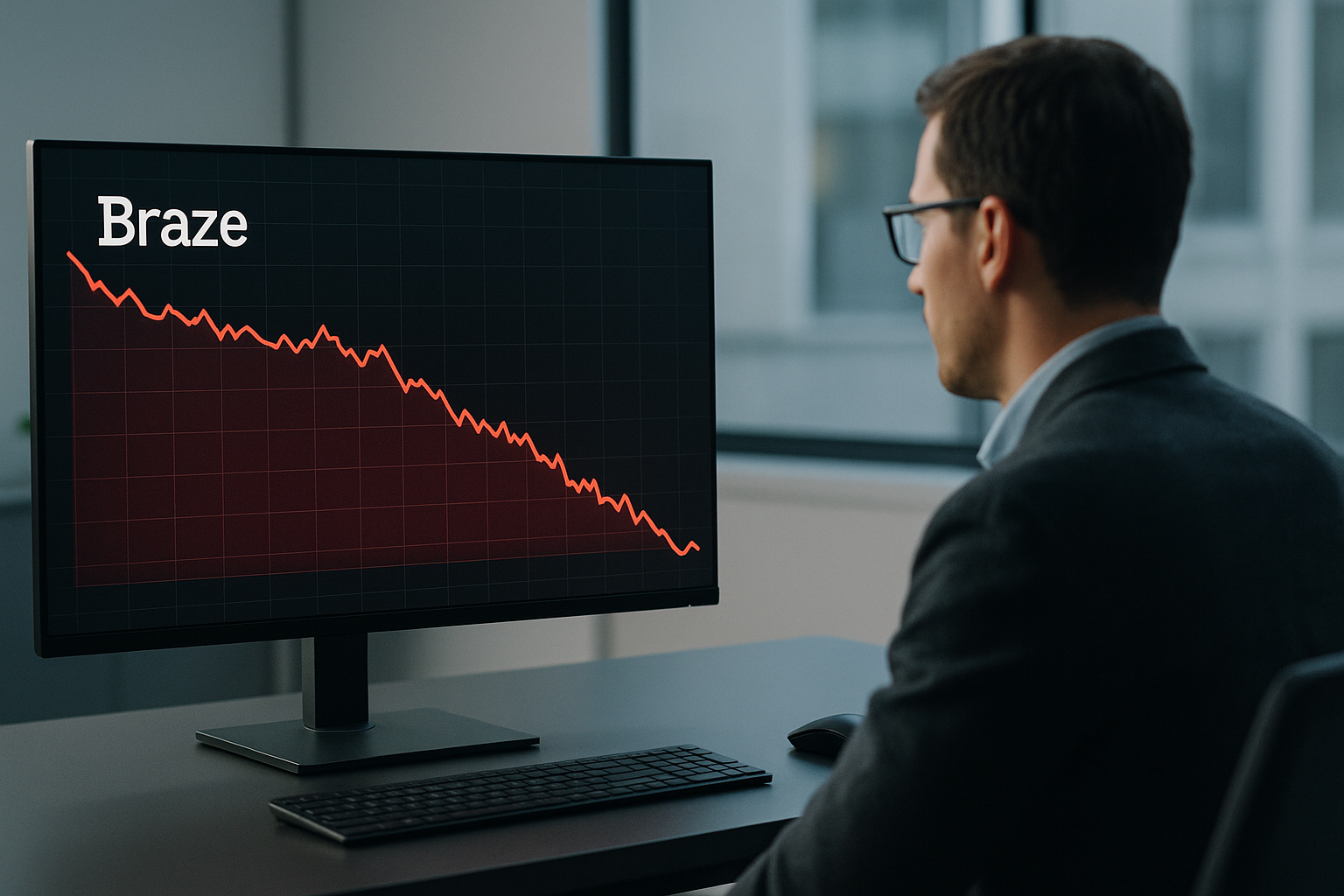Well, it happened again. Another tech darling just got absolutely hammered.
Braze, the customer engagement platform that helps companies not annoy the living daylights out of their users, saw its stock crater 18% on Friday. Nothing like watching your investment nosedive right before the weekend, am I right?
I've been tracking Braze since its IPO, and this drop feels different than the garden-variety volatility we've seen in the SaaS sector. The company actually reported decent numbers — revenue up 31% year-over-year to $130.5 million, beating Wall Street's expectations. But in today's market, "decent" might as well be "disappointing."
The real problem? Forward guidance. Investors had priced in acceleration, and Braze delivered... consistency. That's the funny thing about markets (and by funny, I mean painfully irrational) — a company can be growing healthily while its stock gets absolutely clobbered.
Look, I've covered enough of these tech selloffs to recognize a pattern. There's a difference between a stock getting revalued and a business fundamentally deteriorating. This seems more like the former.
At a conference last month, I spoke with several CTOs who consider customer engagement platforms mission-critical. "We'd cut other tools before touching our engagement stack," one told me, nervously checking his phone for—you guessed it—customer notifications.
The metrics back this up. Braze still boasts net dollar retention above 120%, meaning existing customers keep spending more over time. Unlike some of its cash-burning peers, Braze is showing improving operating margins. Not terrible for a company now trading at roughly 6x forward revenue.
Remember when these SaaS stocks commanded 15-20x multiples? (Those were some wild days, weren't they?)
The competitive landscape is... complicated. Twilio's Segment, Salesforce, and a swarm of hungry startups all want a piece of this pie. That's a legitimate concern for long-term investors.
But for those with patience—and perhaps a cut-resistant glove—this selloff might present an opportunity. Not to back up the truck immediately, mind you. More like dipping a toe in, ready to average down if the slide continues.
As a grizzled portfolio manager once told me over what was definitely not his first scotch of the evening, "The best investments often feel terrible when you make them." Then again, he also thought crypto would never catch on, so what does anyone really know?
The smart money seems to be scaling in gradually rather than making heroic all-at-once bets. Because sometimes good companies have bad days—and sometimes falling knives just keep falling.
I'll be watching this one closely. Might even add a few shares myself.
